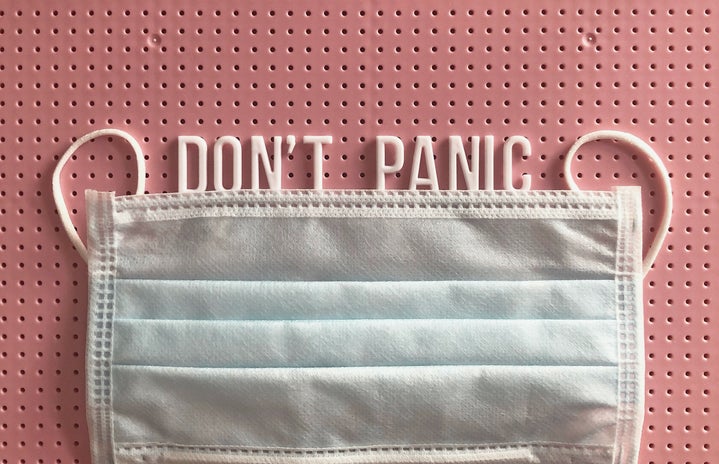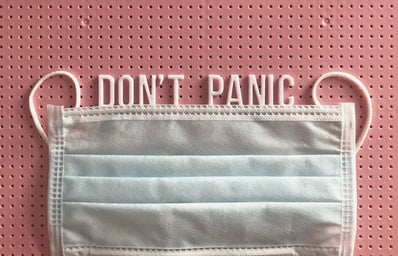While the days of making cloud bread and binge-watching Tiger King on Netflix during the first lockdown are long gone, the virus still persists. As we slowly begin to receive news on the highly anticipated vaccine, there’s one thought that seems to be crossing everyone’s mind; “When will things go back to normal?”
This raises more questions as to what exactly “normal” will look like after living with the virus for so long. The fact is that once we finally see the other side of this global crisis, there are various aspects of life that we once considered “normal” that may be forever changed. While this may sound pessimistic, not all of it has to be negative. Here are 8 positive things that should be normalized in the post-pandemic society.
Having more flexibility with “sick days.”
Why should we be penalized for staying home when we may be contagious? Keeping your co-workers or classmates safe from possibly spreading any type of sickness should not have a negative connotation to it. Especially after seeing all the damage that can be done when people choose to go out while contagious, staying home while sick should be encouraged.
Choosing to take classes virtually.
Whether it’s because of the cost, the campus, the commute, or the courses offered, online learning allows for more flexibility in your education and your daily life. Especially with modern technology, you no longer have to leave your home to get access to things like lectures, tutoring, and textbooks. If you feel as though online learning is the best option for your life and goals at a certain time, then you should be able to go for it!
Regular discussions about mental health.
This is a big one. In a year full of isolation, demands for social justice, and political turmoil, it is TOTALLY OKAY not to feel okay. In addition, whether it be a significant life event, a birthday or holiday, or even a loved one, everyone has experienced some form of loss. Everyone is going through something different, together, while separate. So let’s talk about it. By checking in on your friends and loved ones and having regular conversations about what’s going on inside your head, we can lessen the stigma around mental health and support each other’s wellbeing.
Choosing not to attend mass gatherings with strangers present.
After so many restrictions of how many people can be present in a given area for it to be deemed “safe,” it is okay to question whether or not you feel comfortable in a room full of complete strangers. You don’t know where they’ve been, who they’ve been in contact with, or what possible ailments they might have. If that makes you feel uncomfortable, that’s okay. If things like concerts or even really crowded dinner parties just aren’t your thing anymore, you shouldn’t have to feel bad about it.
Being extra cleanly or a “germaphobe.”
Since the beginning, we have been told that part of what keeps coronavirus cases at bay is being diligent with washing your hands, and sanitizing surfaces. Even once the virus is eventually gone, being extra clean can still stop or minimize the spread of germs. Especially during cold and flu season, bring on the clorox wipes and hand sanitizer, but not an ounce of guilt.
Choosing not to physically touch someone while greeting them or saying goodbye.
How many times have you gone in for a handshake or high five, then remembered we’re supposed to minimize contact to stop the spread of germs? Yes, it’s awkward. But this may become a personal preference of whether or not you want physical contact when saying hello or goodbye. Don’t feel rude if you would rather a wave goodbye or verbal greeting.
Taking up a random hobby and quickly abandoning it.
Being quarantined in one living space has caused people to get creative and try new things. Whether you wanted to learn to bake, paint, play an instrument, or any variety of activities during your quarantine, it’s okay if you didn’t pursue it further or become an expert. This doesn’t mean you’re lazy or a failure. Trying new things as a creative outlet can be good for your health, and a good way to pass the time. But abandoning new hobbies or projects for no actual reason other than it did not stick with you, should not be frowned upon.
Wearing a mask in public.
While walking down a crowded street or sitting on tightly packed public transportation, you may come in close contact with a plethora of people, as well as their germs. Taking the easy action of covering your mouth and nose to prevent those germs from entering your system is totally acceptable, even when there’s no coronavirus.
While normalcy may look different than it did prior to March 2020, you may find that you like some aspects of the “new normal” better than you did before. The end of the pandemic will come eventually. But for now, keep your chin up, and your mask on.



